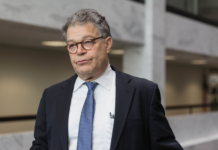WASHINGTON — President Donald Trump has signed a new executive order implementing a new travel ban.
The ban will go into effect on March 16, 2017, giving government organizations 10 days to prepare for the implementation of the order.
Attorney General Jeff Sessions told members of the press, “This executive order provides a needed pause so we can carefully view how we scrutinize people coming from those countries of concern.”
Unlike the unveiling of past executive orders, Trump signed the order in the early hours of the morning without press present. White House Press Secretary Sean Spicer tweeted a photo Trump in the oval signing the order.
.@POTUS has signed a new executive order that will keep the nation safe. Read it at https://t.co/XcBwwEJJHF pic.twitter.com/Yx2mikXl2A
— Sean Spicer (@PressSec) March 6, 2017
Unlike the previous travel ban, the administration removed Iraq from the list of banned countries. Citing the close relationship between the United States and Iraq, the White House states Iraq has done considerable work to fight the growing threat of ISIS in the region.
“I would like to to express my appreciation to Prime Minister al-Abadi of Iraq for his positive engagement and support for implementing these actions,” Secretary of State Rex Tillerson said.
The ban, however, institutes a 90-day travel ban for new visas only for the six countries listed in the order: Iran, Libya, Somalia, Sudan, Syria, and Yemen.
The national refugee program, barring federal injunction, will be suspended for 120 days to evaluate current policies. Unlike the first travel ban, Syria will no longer have an indefinite travel suspension to the United States. Instead, the country will fall have to wait four months with the other five countries as the United States reviews its current vetting process.
“We cannot compromise our nation’s security by allowing visitors in when their own government is unable or unwilling to provide the info needed to vet them responsibility. Or when those governments actively support terrorism,” Sessions said.
Many see the travel ban as discrimination against Muslims after the order prioritizes refugee claims from religious minorities like Christians. The White House dismisses the idea of discrimination in the order stating the refugee claim for religious minorities applies to all countries, noting Islam as a minority in many communities.
Minnesota Senator Al Franken (D-MN) released a statement stating, “I strongly opposed President Trump’s previous travel ban because it was poorly thought out, poorly executed, and above all, it hurt Minnesota families. Make no mistake, it remains discriminatory, short-sighted, and completely unacceptable. I’m going to continue to fight for Minnesota families because this executive order is not who we are as Americans.”
Minnesota is home to refugees and immigrants from all over the world. As of 2014, Minnesota had more than 400,000 foreign-born residents. People from Somalia, Korea, India, Ethiopia, Laos, Vietnam, and Mexico are just some of nations making up the immigrant population in Minnesota.
The Council on American-Islamic Relations-Minnesota in a press release announced, “The Trump Administration seeks to make this discriminatory ban more palatable to the courts, we must continue to challenge it for what it is, the Administration’s attempt to legalize bigotry, said CAIR-MN Executive Director Jaylani Hussein. This new Executive Order betrays our American values and will aid our enemies and make us less safe.”
While the Trump administration hopes the new executive order will stand up to scrutiny, early reactions on social media of the order suggest it may be sent to court once again. #MuslimBan became the number one trending topic in the United States by midday on Monday.

















